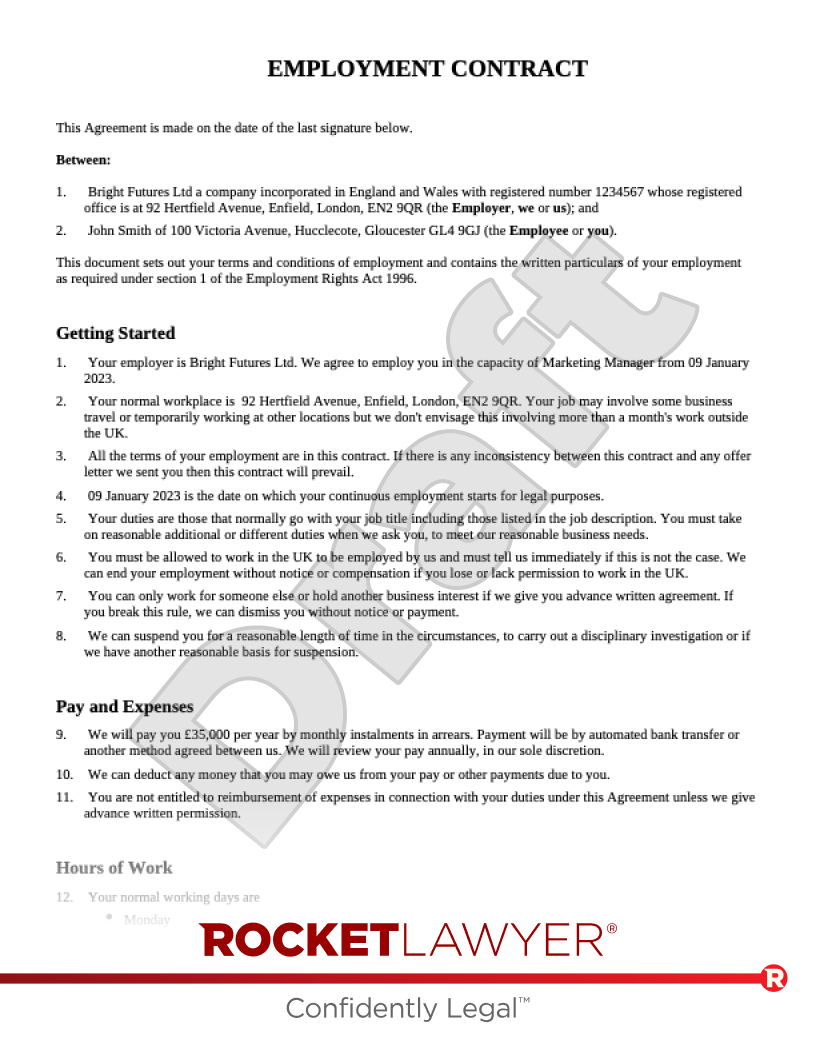What is a fixed-term contract?
As the name suggests, fixed-term employment contracts are designed to cover a specific period of time. Unlike open-ended standard employment contracts, fixed-term contracts have an endpoint (whether a specific date or the point at which a project has been completed) upon which the employment relationship automatically ceases, unless a new agreement is reached. Some of the situations in which a fixed-term contract will be suitable include:
-
seasonal work - where there is a peak period that requires more workers compared to off-peak times
-
project work - when either a larger workforce is required to complete the project or the skills of specialist employees are needed for a limited time
-
maternity cover - this is usually fixed-term but sometimes extended, often resulting in the fixed-term employee being taken on permanently
Agency workers, apprentices and students on a work experience placement are not considered to be fixed-term employees.
What rights do employees have in a fixed-term contract?
Employees on fixed-term contracts should not be treated any less favourably compared to their permanent counterparts unless there is an 'objective justification' (ie a good business reason) to do so. They should receive the same (or equivalent) benefits package, pay and conditions.
If they have worked for at least two years for the same employer under a fixed-term contract, they obtain the same redundancy and unfair dismissal rights as permanent employees. Furthermore, they should be given information about permanent vacancies in the business.
What happens once a fixed-term contract comes to an end?
Notice does not have to be given to end a fixed-term contract at the agreed endpoint as the contract ends automatically.
Early termination
If an employer wants to end a contract early, appropriate wording must be included in the contract to allow for early termination. Employers must provide a minimum notice of:
-
one week if the employee has worked for at least one month
-
one week for each year if the employee has worked continuously for at least two years
Similarly, employees must also provide a minimum of one week’s notice if they have worked for at least one month. In either case, longer minimum notice periods may be stated in the contract. Read Notice periods for more information.
Continuation
If employees continue working beyond the end date of a fixed-term contract without formal renewal, this is considered an implied agreement to extend the fixed term.
If the employment continues for at least four years, a fixed-term employee will automatically become a permanent employee. This is subject to any collective agreements or a good business reason which prevents this.
Unfair dismissal
If a contract is not renewed this is considered dismissal. If a fixed-term contract lasts for at least two years then the employer will be required to demonstrate a fair reason for not renewing the contract, as the employee will have gained unfair dismissal rights.
What are the pros and cons?
Some of the benefits of fixed-term contracts include more flexibility for both employers and employees and the ability for a business to control budgets according to its workforce requirements.
However, fixed-term positions are often not as attractive as permanent contracts to employees and subsequently harder to fill. Also, if a fixed-term contract needs to be ended early by the employer and a provision has not been made in the contract, this can lead to financial penalties.




